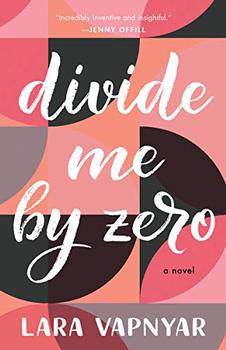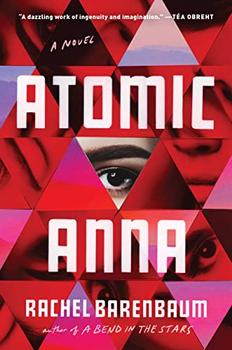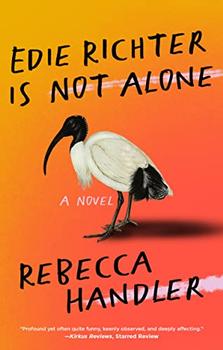Summary | Excerpt | Reviews | Beyond the book | Read-Alikes | Genres & Themes | Author Bio

Divide Me By Zero begins with an encounter between the narrator, Katya Geller, a 40-something mother of two, and a fish seller in Staten Island from whom Katya is buying caviar. "I was brought up in the Soviet Union, where caviar was considered a special food reserved for children and dying parents," Katya says. The fish seller, another Soviet immigrant, understands Katya's meaning and the two lock eyes and begin to cry. This moment of intense connection between two strangers charts the course for Lara Vapnyar's frank and emotionally honest story of love and loss.
As Katya looks back on her life and the three romantic relationships that most significantly shaped her, the relationship with her mother remains the focal point of her reflections. Back in Russia before they immigrated when Katya was in her late teens, her mother had made her living as the author of mathematical textbooks for children, and shortly before her death, she was planning her first English-language textbook. After her death, Katya goes through her mother's notes, trying to find solace in the sturdiness of math. Each chapter begins with one of her mother's notes ("Learning to arrange things in a certain order," or "Don't push too much math on a child. Or she might rebel!"), and Katya uses the subsequent pages to try to fit her own life story around her mother's notes.
The parallels between her mother's math and Katya's life are tenuous, but Katya knows this—she manipulates equations and tries to force analogies where there aren't any in a desperate attempt to assert control over her grief. There's a stark self-awareness in the narration that causes the novel to read like a memoir at times, though its incessant humor and charm keep it from tipping over the edge into bleakness or melodrama. On the contrary, it's a much breezier read than one might expect from its heavy subject matter, helped along by the fact that a love story is running parallel to the story of Katya's grief.
Trapped in a loveless marriage with Len, Katya has spent most of her life in love with B. who refuses to leave his wife, so she attempts to escape into a whirlwind affair with millionaire Victor. Katya, who lost her father at a young age, grew up under the influence of the story of her parents' passionate love affair; but at the same time, she is convinced that love is impractical. The tension between passion and practicality is at the core of Katya's heartache, as she's unable to give herself fully to either ideal.
At its core this is a book about human connection—forced connection, organic connection and everything in between. The opening scene between Katya and the fish seller presages the struggle that Katya will face through the rest of the novel—opening herself up to vulnerability. There's a certain universality to her conflict that will resonate with most readers, despite the backdrop of Russian immigration that makes this story so singular. With refreshing honesty and expertly employed tongue in cheek humor, Divide Me By Zero is a whip-smart, razor-sharp book that defies easy genre categorization, but which leaves a lasting impression.
![]() This review was originally published in The BookBrowse Review in October 2019, and has been updated for the
November 2020 edition.
Click here to go to this issue.
This review was originally published in The BookBrowse Review in October 2019, and has been updated for the
November 2020 edition.
Click here to go to this issue.

If you liked Divide Me By Zero, try these:

by Rachel Barenbaum
Published 2023
From the author of A Bend in the Stars, an epic adventure as three generations of women work together and travel through time to prevent the Chernobyl disaster and right the wrongs of their past.

by Rebecca Handler
Published 2022
Funny, acerbic Edie Richter is moving with her husband from San Francisco to Perth, Australia.
Your guide toexceptional books
BookBrowse seeks out and recommends the best in contemporary fiction and nonfiction—books that not only engage and entertain but also deepen our understanding of ourselves and the world around us.